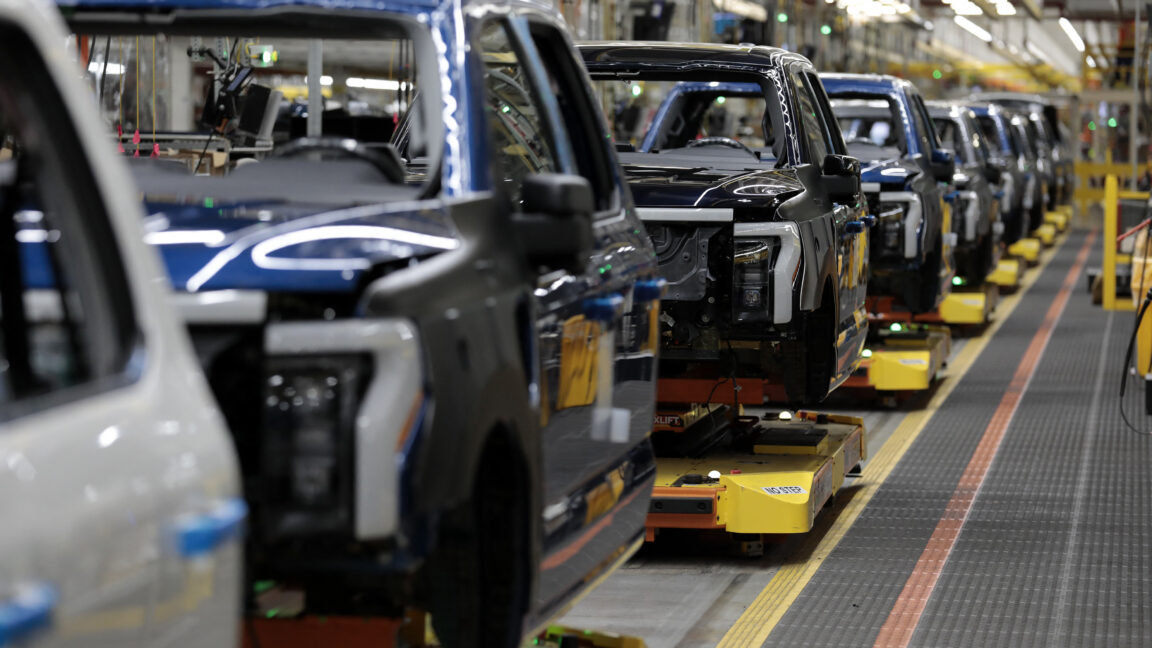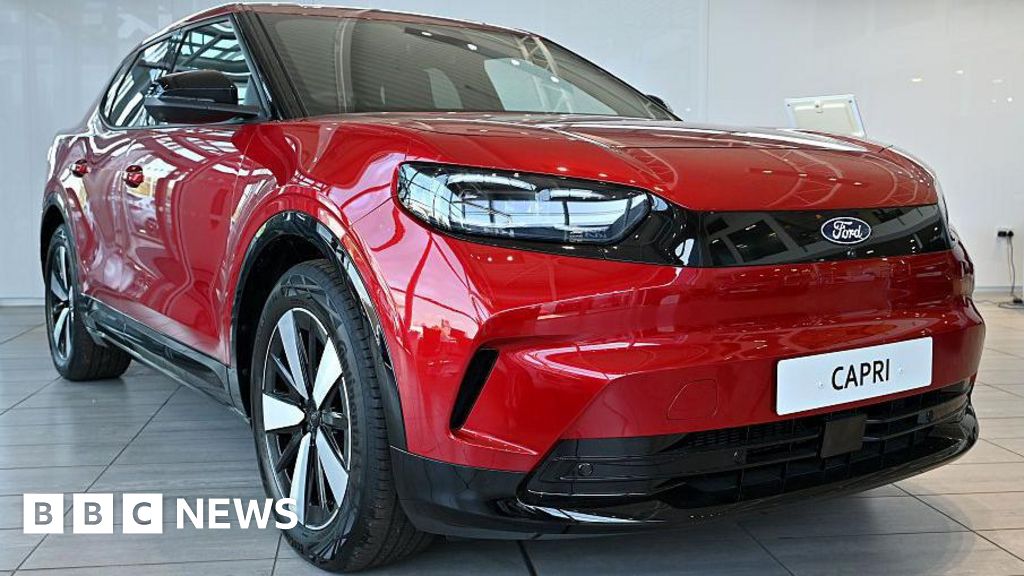Ford Delays F-150 Lightning Restart as Inventory Stays Strong
#ford #f-150_lightning #electric_vehicle #inventory #automotive

Ford Delays F-150 Lightning Production Restart
Ford has announced there is “no exact date” yet for resuming production of its electric F-150 Lightning pickup. Despite this uncertainty, the automaker assures customers that inventory levels remain sufficient to meet current demand. This pause reflects Ford’s cautious approach amid evolving market conditions and supply chain challenges.
Current Inventory and Market Position
The F-150 Lightning continues to be available in dealerships, offering buyers a powerful electric truck with impressive range and performance. Ford’s stock includes models with advanced features such as extended-range batteries and onboard power outlets, appealing to both work and lifestyle users. The company’s decision to hold production highlights inventory management rather than a decline in confidence for the model.
Looking Ahead for the Electric Truck
While production timing remains unclear, Ford’s commitment to electrification is evident through the Lightning’s innovative design and technology. The automaker’s focus may shift to optimizing marketing efforts and addressing consumer perceptions to strengthen the F-150 Lightning’s position in the growing electric truck market.
About the Organizations Mentioned
Ford
## Overview Ford Motor Company is a global automotive industry leader, recognized as the second-largest automaker in the United States (after General Motors) and the sixth-largest worldwide[1]. Headquartered in Dearborn, Michigan, Ford designs, manufactures, markets, and services a full line of vehicles—including cars, trucks, SUVs, electrified vehicles, and luxury vehicles under the Lincoln brand[1]. The company operates in every major automotive market and is renowned for its innovation, manufacturing scale, and iconic brands. ## History and Key Achievements Founded in 1903 by Henry Ford, the company revolutionized the automotive industry with the introduction of the Model T in 1908, making cars affordable for the masses through assembly line production. This innovation not only transformed Ford but also set a new standard for industrial manufacturing worldwide. Over more than a century, Ford has introduced several landmark vehicles, such as the F-Series trucks—America’s best-selling vehicle for over four decades—and the Mustang, an enduring symbol of American automotive culture[1]. ## Current Status As of 2025, Ford continues to demonstrate strong financial performance, with revenues of $185 billion and net profits of $5.9 billion in 2024[1]. The company is led by CEO Jim Farley, who has prioritized both electrification and quality improvements since taking the helm in 2020[1]. Ford’s vehicle lineup remains robust, with the F-Series leading U.S. truck sales and electrified vehicles accounting for nearly 16% of its U.S. sales in the third quarter of 2025[3]. The company is aggressively investing in electric vehicles (EVs), committing $5 billion to develop a family of affordable, adaptable EVs and building a new battery plant in Michigan[2]. ## Notable Aspects and Challenges Ford is currently at a pivotal moment in its history. It is reinventing its manufacturing system to produce next-generation EVs, aiming to secure American jobs













